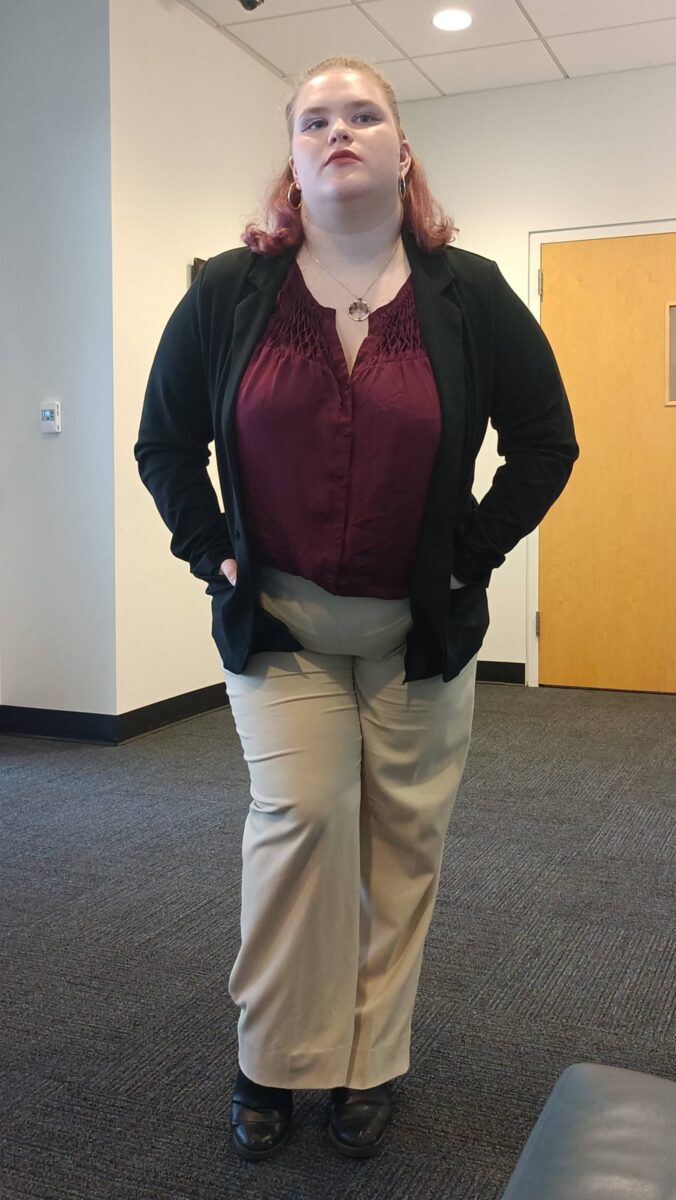Mick’s Blog
05.22.25
Category: Survivor Voices
Type: Blog
05.22.25
Category: Survivor Voices
Type: Blog
 I was sexually assaulted by my boyfriend at 14 and like many survivors, I did not realize what happened to me was sexual assault until later. I considered myself relatively well-educated, and I had even been pretty politically involved during #MeToo, and remember hearing women I respected talk about their experiences with sexual assault. However, when a similar thing happened to me, a certain level of cognitive disconnect occurred, and I assumed because I had not told him “no” I must’ve consented.
I was sexually assaulted by my boyfriend at 14 and like many survivors, I did not realize what happened to me was sexual assault until later. I considered myself relatively well-educated, and I had even been pretty politically involved during #MeToo, and remember hearing women I respected talk about their experiences with sexual assault. However, when a similar thing happened to me, a certain level of cognitive disconnect occurred, and I assumed because I had not told him “no” I must’ve consented.
My abuser continued to sporadically harass me over social media and text for years, and after one conversation that left me sobbing and hyperventilating, I googled “ex boyfriend won’t leave me alone” and started to get results for DV hotlines. I tried rephrasing the question a few different ways, since I did not think I had been abused, and finally called one of the numbers. I remember the woman I was talking to gave me reassurance that I hadn’t realized I needed. We talked, and she explained to me what emotional abuse was, and how sexual assault isn’t just saying “no” it’s an absence of a “yes.” The feelings of shame and guilt I had felt about the experience, the way I had struggled with my relationship to sex and my body since then, the nightmares, and the intrusive memories suddenly made a lot more sense.
I started receiving Prolonged Exposure (PE) therapy at KCSARC last summer, after an inpatient program I had attended recommended that I find a place where I could receive that type of therapy. I had tried a few different kinds of trauma treatment and so I figured it might be worth a shot. It was possibly the hardest thing I’ve ever done, and it was also life changing. I had never told anyone what happened to me in any type of specific detail, and while it scared me, the more I talked about it, the easier it felt. I know so many survivors have felt like I do, and I am here to encourage them to speak up, and tell someone. There are so many resources for you, no matter where you are in your journey or in your life.
Last week, I was sitting at a bar with my friends, and I realized for the first time in six years that I was finally starting to feel hopeful about my future. I’ve been thinking about that a lot this week, and what it means for me to start to feel that way. Hope is a very strange feeling when you haven’t felt it in a long time. My PTSD is now manageable, and I have figured out how to advocate for myself and communicate what I need to others, but it is also hard work. The difference for me is that this hard work finally feels doable.
I received advice from a therapist a few years ago that if I didn’t feel hopeful about my future, or about my mental health ever getting better, I should just act like someone who was. I was actually furious about receiving that advice at the time. It felt like doing so would’ve been a waste of time because sure, I had coping skills, but I was never going to be able to use them in a way that didn’t utterly exhaust me. It turns out she was right, and I’m thankful I ended up halfheartedly following her advice, at least enough to get myself into college studying something I am passionate about. Now, I feel like I have my whole life ahead of me and I’m actually looking forward to it, in a way that I haven’t since I was a kid. Life finally feels worth living.
I’m studying gender-based violence and international human rights in college, and the biggest thing I’ve found is that gender-based violence does not occur in a vacuum. Culture plays an enormous role not just in the perpetration of sexual violence, but also in the subtle acceptance of it. In order to prevent gender-based violence as a whole, there needs to be a broad cultural shift in the way we talk about sex (Planned Parenthood’s website has resources on “comprehensive sex education” to learn more), but there are things we can also do on a more micro scale. You can start making sexual violence, and attitudes around sex less stigmatized on your own, even by just talking about it in your circle of friends, with your children, or your family. And most importantly, listen to survivors. People who have experienced sexual violence are the experts on it. They know the effects, so let their voices be heard. You almost certainly know one or you are one yourself. Know that help is out there, and that hope isn’t out of reach.
KCSARC’s 24-hour Resource Line is available 24/7 with trained advocates ready to listen and provide free, confidential support and information to help you determine next steps. Whenever you’re ready, call 1.888.998.6423.
Every survivor’s healing journey and recovery is unique and personal. The thoughts and experiences shared by our Empowered Voices members are personal to the author and may not reflect the experiences or journey of every survivor. The views expressed are not intended to represent KCSARC’s organizational views.